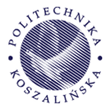The project aims to develop new knowledge on food festivals’ role, impacts and extent in Polish rural areas, their communities and the business environment. The project focuses on rural development in Poland through food festivals. It is motivated by the fact that many rural communities in Poland are characterized by a significant interest in enhancing locally embedded and sustainable food production and sale. This can also reduce outmigration and rural decline. Food festivals are instrumental in achieving these ambitious goals. Previous research has suggested that they are regarded as possible contributors to rural development, preservers of tradition and bringers of renewal, and sometimes providers of coherence, commitment and meaning for local community members and visitors alike. Furthermore, previous research has pointed out that food festivals can be signs of continuity to the past, but also sparks of culinary tradition renewal into new formats and meanings. Moreover, food festivals might be a powerful means of self-identification, self-realization and self-examination for food producers, often becoming a steppingstone for local culinary products promotion and commercialization.
The project has been divided into three work packages, whereas each addresses two research
questions: WP1: spatial and temporal coverage of food festivals; WP2: the impact of food festivals on development; WP3: the impact of food festivals on business spinoffs. WP1 addresses the following research questions: What is the spatial distribution of food festivals in rural areas? And what is the composition of food festivals (origin, type, size, theme) in rural areas? WP2 addresses the following research questions: How do festivals provide constraints as well as opportunities for rural development? And how do perceived impacts of a festival on a rural place vary between the main stakeholder groups: locals, visitors, and organizers? Finally, WP3 addresses another two research questions: How do exhibitors at food festivals link up with the local area and what kinds of business spinoffs do food festivals create? And more generally, is there a case for “co-innovation” in a food festival setting, and what are the innovative characteristics?
The research concept for the current proposal has been derived from a series of research projects on rural and regional effects of events and festivals in which Associate Professor Grzegorz Kwiatkowski has been involved in Scandinavia and Germany since 2015. The project contains 3 phases. The first phase is design-centric and will embrace internal and external desk research to review and systematize existing contributions, food industry reports, and governmental statistics about the socio-economic effects of (food) festivals and their rural development role. Special attention will be given to business aspects of rural (food) festivals, especially the issue of entrepreneurial implications and prospects for co-innovation at food festivals – a problem that have hitherto been sparsely addressed in academic research. A consistent instrument for data collection among different groups of festivals stakeholders will be designed and tested based on the acquired knowledge. This phase will also aim to identify and localize in space and time as many food festivals are hosted in Polish rural areas. An integral part of this phase will be a research meeting and project’s ‘design-phase’ consultation with Prof. A-M. Hjalager (University of Southern Denmark) and Prof. O. Oklevik (Western Norway University of Applied Sciences). The second phase is data-centric and embraces two core activities: (a) data collection and (b) data analysis. Two diagnostic survey techniques will be implemented to collect data: self-administered questionnaire interview and in-depth direct interview. The first self-administered questionnaire will be sent to organizers of all identified food festivals in Poland by email and – if not possible – by surface mail. Afterward, based on several criteria (e.g., location, time, schedule, size, theme) particular food festivals (cases) will be selected for more detailed research. At each chosen festival, visitors and residents will be surveyed using PAPI method. The third phase is dissemination-centric and focuses on results’ dissemination. This will be achieved by a multi-channel strategy that will embrace six journal papers published in top journals of international scope and reach, related to either rural studies, place development and festival management. It is planned to publish projects’ results exclusively in English, in reputable journals. Furthermore, it is intended to attend six international and four domestic conferences related to rural/local development and festival management.
If you wish to learn more about the project, please contact project leader Associate Professor Grzegorz Kwiatkowski (grzegorz.kwiatkowski@tu.koszalin.pl) or visit our webpage: Food festivals (koszalin.pl)


